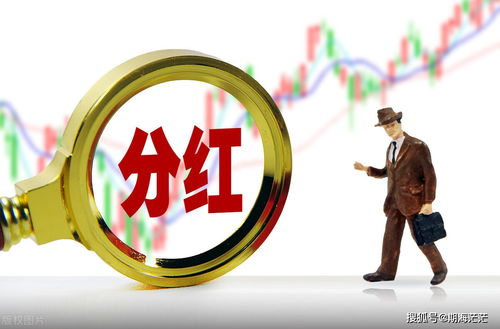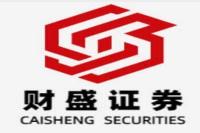Tokyo Metro IPO: A Deep Dive into Japan's Public Transportation Giant
Meta Description: Discover all you need to know about the Tokyo Metro IPO, including its initial public offering (IPO) price, potential for growth, and the impact on Japan's transportation industry. Learn about the company's history, financial performance, and future prospects as a major player in the global public transportation market.
Introduction
For investors seeking a piece of the bustling Japanese transportation landscape, the Tokyo Metro Initial Public Offering (IPO) has been eagerly anticipated. With its iconic network spanning the heart of Tokyo, the company boasts a long history of reliable and efficient service, catering to millions of daily commuters. But what does the IPO mean for investors? Is this a golden opportunity to ride the wave of a growing public transportation market, or are there hidden pitfalls to consider? This comprehensive article delves into the Tokyo Metro IPO, analyzing its potential, evaluating the company's strengths and weaknesses, and providing insights for informed investment decisions.
The Tokyo Metro: A Legacy of Efficiency and Growth
The Tokyo Metro, established in 1950, is a behemoth in the Japanese transportation sector. Its network of 13 lines extends over 195 kilometers, transporting over 8 million passengers daily. The company is renowned for its efficiency, punctuality, and safety, contributing significantly to the smooth functioning of one of the world's largest metropolitan areas.
A Look at the Numbers:
- Revenue: Over 200 billion Japanese yen annually.
- Passenger Volume: Averaging 8 million daily riders.
- Network Length: 195 kilometers spanning 13 lines.
Why the IPO?
The decision to go public is often fueled by a desire for growth and expansion. In the case of Tokyo Metro, the IPO aims to:
- Raise Capital: Secure funding for infrastructure upgrades, new line developments, and technological advancements.
- Enhance Brand Visibility: Increase public awareness and generate brand recognition on a global scale.
- Improve Financial Flexibility: Gain access to a wider pool of capital for strategic acquisitions and partnerships.
The IPO Offer:
The Tokyo Metro IPO was initially set at a price of 1100 Japanese yen per share. This price reflects the company's strong financial performance, its established position in the Japanese market, and the potential for growth in the global public transportation sector.
Strengths and Weaknesses
Strengths:
- Brand Recognition: The Tokyo Metro is a household name, synonymous with reliability and efficiency.
- Market Dominance: The company holds a dominant position in the Tokyo metropolitan area, capturing a significant portion of the public transportation market.
- Financial Stability: The company boasts a strong track record of profitability and consistent revenue generation.
- Government Support: The Japanese government is actively supporting the development of public transportation infrastructure, providing a favorable environment for growth.
Weaknesses:
- Competition: The Japanese transportation market is becoming increasingly competitive, with the emergence of private operators and the expansion of rail networks.
- Regulatory Challenges: The transportation sector faces strict regulations that can impact pricing and expansion strategies.
- Dependence on Tokyo: The company's revenue is largely concentrated in the Tokyo metropolitan area, making it vulnerable to economic fluctuations.
- Technological Disruption: The rise of ride-sharing services and autonomous vehicles poses a potential threat to traditional public transportation models.
Potential Growth Opportunities
Despite potential challenges, the Tokyo Metro has several avenues for growth:
- Expansion into Regional Markets: The company can explore opportunities to expand its services into other major cities in Japan and beyond.
- Technological Innovation: Investing in advanced technologies such as automated train systems and contactless payment solutions can enhance efficiency and attract new riders.
- Strategic Partnerships: Forming alliances with other transportation operators and technology companies can unlock new growth avenues.
Investing in the Future of Transportation
The Tokyo Metro IPO presents an opportunity for investors to participate in the future of public transportation in Japan and beyond. The company's established track record, strong financial position, and commitment to innovation make it an attractive investment proposition. However, it is crucial to consider the potential challenges and risks before making any investment decisions.
Risks to Consider:
- Economic Downturn: A decline in economic activity could negatively impact ridership and revenue.
- Political Instability: Unforeseen political events or policy changes could disrupt the transportation sector.
- Competition: Increased competition from other operators could erode market share and profitability.
- Technological Disruption: The emergence of new transportation technologies could challenge the traditional model of public transportation.
Understanding the Risks
Remember, no investment is without risk. It is essential to conduct thorough research, understand the potential risks, and seek professional advice before making any investment decisions.
Key Takeaways
- The Tokyo Metro IPO offers an attractive investment opportunity for those seeking exposure to the Japanese transportation sector.
- The company boasts a strong track record, a dominant market position, and a commitment to growth.
- However, it is crucial to consider potential risks such as economic downturns, political instability, and the emergence of new transportation technologies.
- Investors should carefully assess their risk tolerance and conduct thorough research before making any investment decisions.
FAQ
Q: What is the initial public offering (IPO) price for Tokyo Metro shares?
A: The Tokyo Metro IPO was initially set at a price of 1100 Japanese yen per share.
Q: What are the key factors driving the Tokyo Metro IPO?
A: The IPO aims to raise capital for infrastructure upgrades, enhance brand visibility, and improve financial flexibility for strategic growth.
Q: What are the potential growth opportunities for Tokyo Metro?
**A: ** The company can expand into regional markets, invest in technological innovation, and forge strategic partnerships to drive growth.
Q: What are the major risks associated with investing in Tokyo Metro?
A: Economic downturns, political instability, competition from other operators, and technological disruption are potential risks to consider.
Q: How can I learn more about Tokyo Metro and its IPO?
A: You can visit the company's website, consult financial news sources, and seek professional advice to gather information on the company and its IPO.
Conclusion
The Tokyo Metro IPO offers a glimpse into the future of public transportation in Japan and beyond. The company's legacy of efficiency and its commitment to innovation make it a compelling investment opportunity. While there are risks to consider, the potential for growth in the global transportation market makes Tokyo Metro a fascinating prospect for investors seeking exposure to this dynamic sector.
Remember, conducting thorough research and seeking professional advice before making any investment decisions is crucial to making informed and responsible investment choices.



